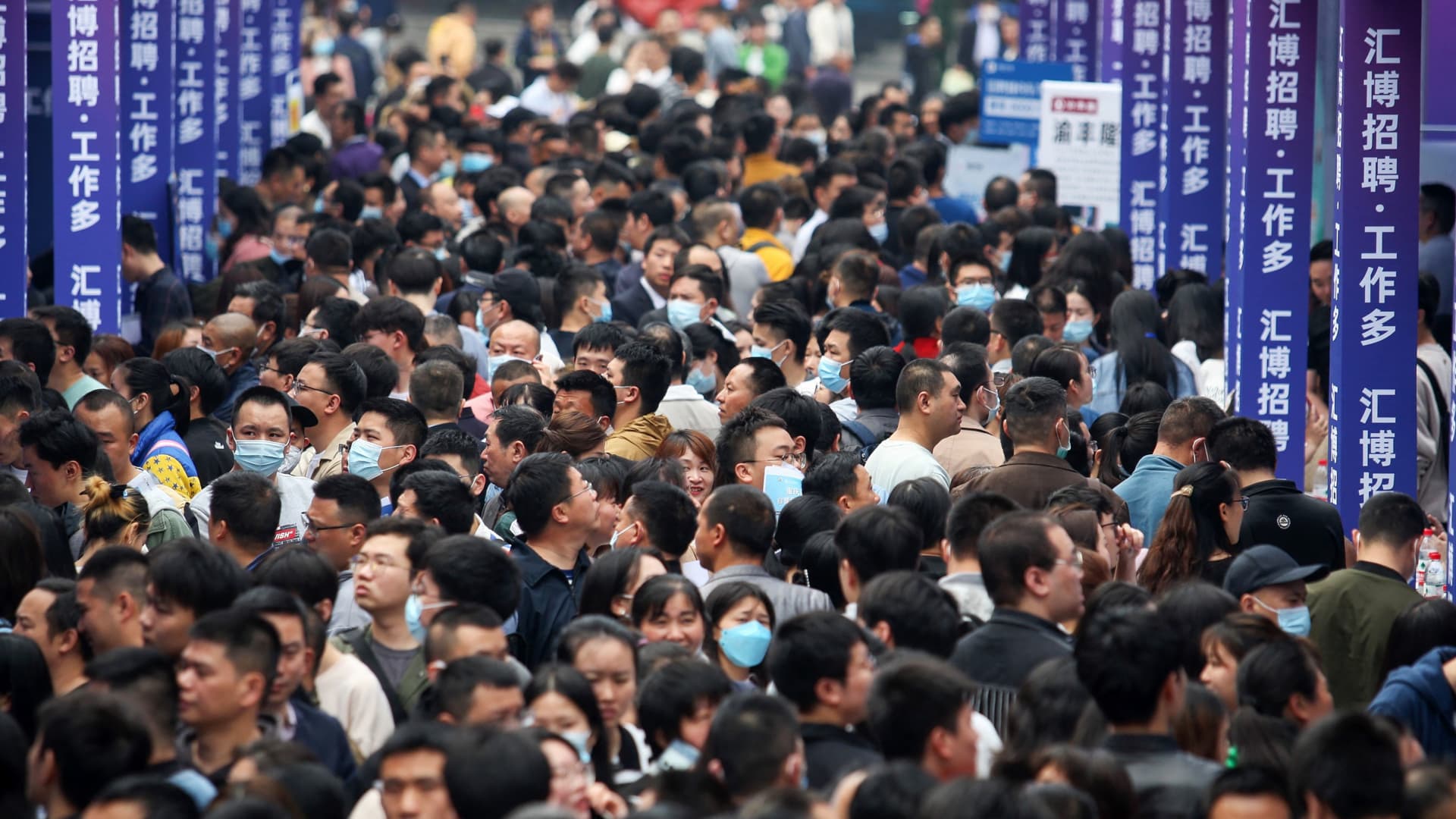A job fair in China’s southwestern city of Chongqing on April 11, 2023.
Str | Afp | Getty Images
China’s youth unemployment rate in August rose to the highest level since the new system of record-keeping began in December, driven by an economic slowdown and restrictive hiring policies, according to analysts.
The jobless rate for people in China ages 16 to 24, and not in school, rose to 18.8% last month, data from the National Bureau of Statistics showed Friday. That’s up from 17.1% in July, and 13.2% in June. China’s urban unemployment rate across all age categories rose 5.3% in August, compared to a 5.2% rise in July.
“It’s increasingly hard for young people to find high paying jobs as before, because in the past three years, the high value-added city services sectors which used to absorb many fresh graduates were in sharp contraction, in particular real estate, finance and IT,” said Dan Wang, chief economist at HSBC.
China’s youth unemployment has also been affected by restrictive hiring policies amid a struggling economy as companies are refusing to hire recent college graduates due to the difficulty and costs involved in firing workers in China.
“Many companies are refusing to hire recent college graduates now because they worry about the costs and legal difficulties if they have to let someone go a year down the line if the economy remains in the doldrums,” said Shaun Rein, founder of China Market Research Group. .
“Companies have to pay n+2. If someone works for 2 years, i.e. a 30 day notice plus 2 months salary. This is expensive so no one wants to fire anyone now or hire anyone new,” he noted.
“That’s why the [overall] unemployment rate isn’t that bad but the unemployment rate for youths is so high,” Rein added.
Unemployment rates are also typically higher during college graduation seasons during the summer months, said Erica Tay, director of macro research at Maybank.
“As fresh competition has entered the market before the previous wave of college graduates were fully employed, this pile-up adds to the risk of hysteresis or stubborn, long-term unemployment,” she told CNBC.
The unemployment data comes on the back of a slew of other disappointing numbers from China in recent weeks, with retail sales and industrial production growing at a slower-that-expected pace.
China paused reporting the youth unemployment rate for much of the latter half of last year while it reassessed its calculation methods. The updated jobless rate for young people excludes those who are still in school, reflecting the increasing number of individuals pursuing higher education in a more competitive job market.
Following a lackluster recovery last year from the Covid-19 pandemic, the world’s second-largest economy continues to face challenges due to a decline in the real estate market and weak consumer confidence. Despite growing calls for policy easing and stimulus measures, the People’s Bank of China left its key benchmark rate on hold on Friday.







